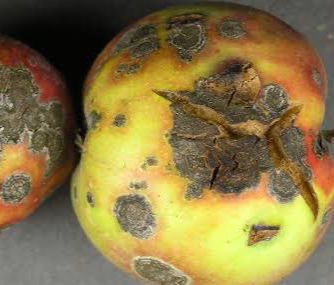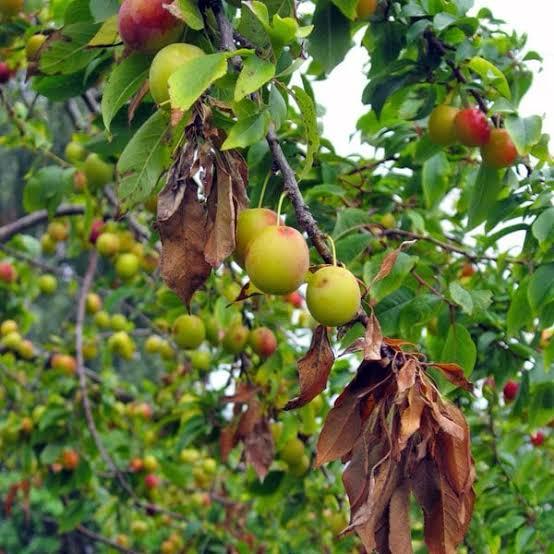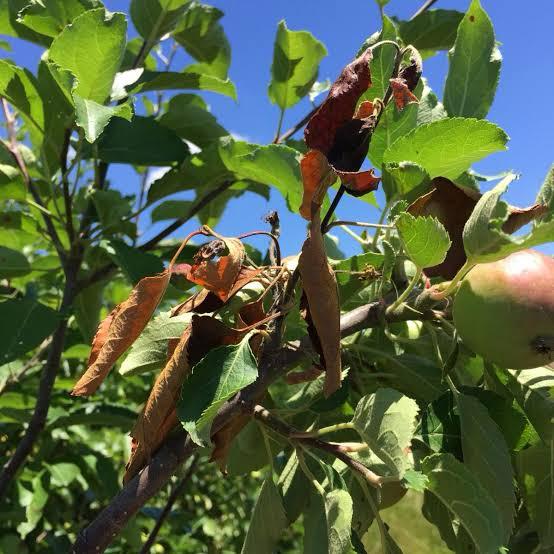Shimla apple(సిమ్లా ఆపిల్) Plant
SHIMLA APPLE(సిమ్లా ఆపిల్), possibly referring to a specific apple variety or a plant with similar care requirements, may require well-draining soil, full sun exposure, and consistent watering. Pruning may be necessary to shape the plant and remove dead or crowded branches.
Habit
Tree
Height
3-6 m
Growth
Moderate
Soil
Well-drained loamy
Shade
Full Sun
Moisture
Moist
Edible
Yes
Medicinal
No
Origin
India (Himalayas)
Climatic Condition
Subtropical, Temperate
Temperature (°)
10-25°C
Humidity (%)
60-80%
Potting media
Peat, loam
Fertilizers
Balanced NPK
Watering
Regular
Plant Weight
1-2 kg
Flowering Time
Fall, Winter
Soil Ph level
6.0 - 7.0
Water Ph level
6.0 - 7.0
Soil EC
1-2 dS/m
Yield Per Plant
10-30 kg/tree
NPK ratio
10:10:10
life Span
Perennial
Health Benefits
Rich in Vitamin C, antioxidants
Suggested Grow Media or Potting Mix ?
50% loam, 25% compost, 25% sand
Suggested Fertigation/Fertilizers
Fertilize every 6 weeks with a balanced fertilizer.
Common Diseases and Remedies
Apple scab, fire blight
olive green to black spots on leaves, premature leaf drop, wilting, blackening, burned appearance of blossoms shoots, branches.orange spots on leaves.
neem oil, copper or sulphur based fungicides. Pruning infected branches.
synthetic fungicides containing myclobutanil, thiophanate methyl,fenarimol.Antibiotics like streptomycin.
HEALTH BENEFITS
Rich in fiber, aiding digestion and gut health.
High in vitamin C, supporting immune function.
Contains antioxidants that help reduce inflammation and heart disease risk.
What Is An shimla apple(సిమ్లా ఆపిల్) Tree?
Shimla apples(సిమ్లా ఆపిల్), botanically classified as Malus domestica, is a general descriptor for apple varieties grown in a specific region in India, belonging to the Rosaceae family.
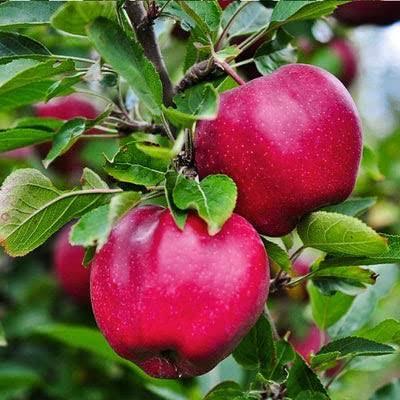
What Are The Different Types Of Shimla apple(సిమ్లా ఆపిల్) Plants?
Red Delicious: This is one of the most popular apple varieties, known for its bright red color and sweet flavor.
Golden Delicious: This variety is similar to Red Delicious but has a yellowish-green skin and a sweet, mellow flavor.
Fuji: Fuji apples are large, round apples with a red skin and a sweet, crisp flesh. They are a cross between Red Delicious and Ralls Janet apples.
Gala: Gala apples are smaller and sweeter than many other apple varieties, with a yellow-orange skin and red striping.
Granny Smith: Known for its bright green skin and tart flavor, Granny Smith apples are often used in baking and cooking.
Jonagold: This is a hybrid apple variety, a cross between Jonathan and Golden Delicious apples. It has a sweet-tart flavor and is excellent for eating fresh or in salads.
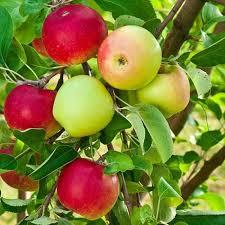
Location
The best placement for a single tree or a grove of apple trees is in full sun, in well-drained soil, away from other trees and outside of any low-lying area that could form a “frost pocket” where cold air settles
Sunshine
Shimla Apple(సిమ్లా ఆపిల్) tree needs the ground where they can get plenty of sunlight (preferably full sun).
Soil
Loamy soils, rich in organic matter with pH 5.5 to 6.5 and having proper drainage and aeration are suitable for cultivation. Dry temperate areas are suitable for apple cultivation. The fruits produced in these areas are of high quality with high sugar content and long shelf life.
Hydration
Apple can be grown at altitudes 1,500-2,700 m. above m.s.l. in the Himalayan range which experience 1,000-1,500 hours of chilling (the no. of hours during which temperature remains at or below 70 C during the winter season). The temperature during the growing season is around 21-240 C.
Nourishment
Nitrogen, Potassium and Magnesium – promote strong early growth of new plant tissues and maximum tree productivity.
Phosphorus – maximize root development and flower cluster formation.
Calcium – boost root and leaf growth and high yields.
Issues
The disease usually noticed on leaves and fruits. Affected leaves become twisted or puckered and have black, circular spots on their upper surface. On the under surface of leaves, the spots are velvety and may coalesce to cover the whole leaf surface.
Benifits of Shimla apple(సిమ్లా ఆపిల్)
Shimla apples are a good source of vitamin C, dietary fiber, flavonoids, and antioxidants. They are a good source of fiber and also reduces the cholesterol levels.
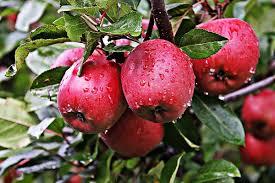
FAQs About Growing Shimla apple(సిమ్లా ఆపిల్)
What is the Speciality of Shimla apples(సిమ్లా ఆపిల్)?
Rich in Vitamin C and fibre, Shimla Apples boost immunity, aid digestion, and provide antioxidants to combat colds and infections. This apple type, which comes from the Valley of Kashmir, is exceptionally delicious, juicy, and delicate to the touch.
What is the apple harvest season?
Fruit Harvesting Season
The apple harvest in Himachal Pradesh starts from July to October and is in peak from August to September.
Do apples need water to grow?
Watering. Throughout the life of the tree, you should water its root zone thoroughly during the growing season whenever there is a dry spell. Ideally, the tree should receive one inch of water from rainfall or irrigation every week from May through October.
Yes, apples are so good for weight loss.
This is simply oxidation happening… the apple is still perfectly fine to eat, just not as pretty. Some varieties stay whiter than others, making them great for salads. You can also use a bit of lemon juice or ascorbic acid (vitamin C) or fruit fresh to keep apples white longer
